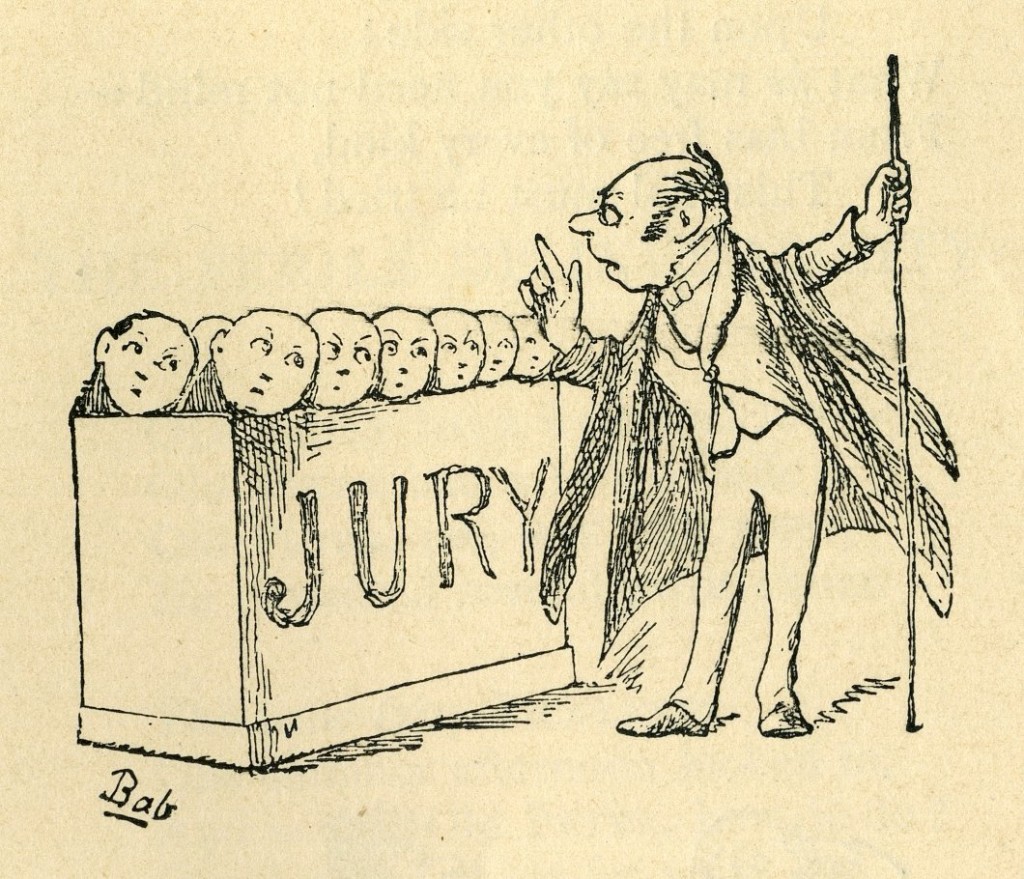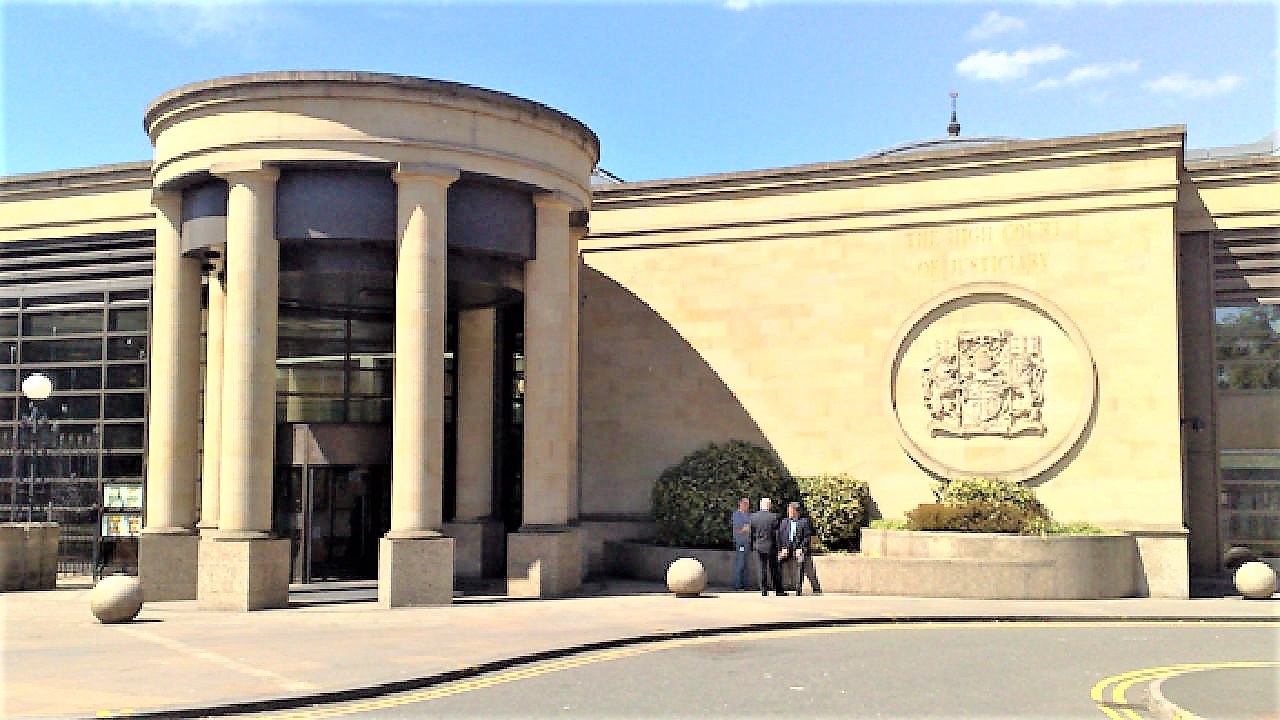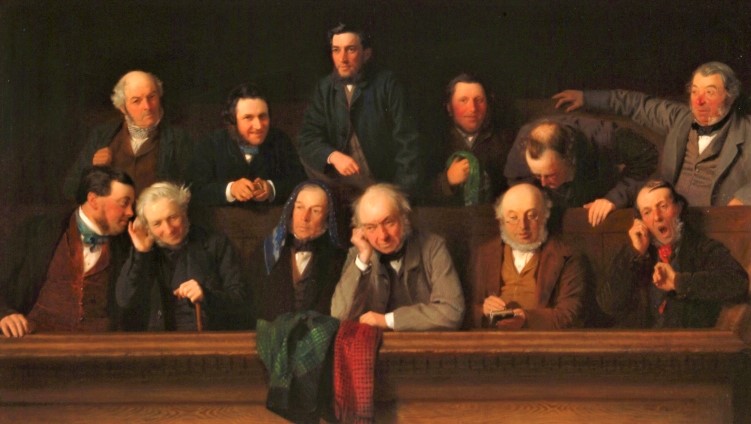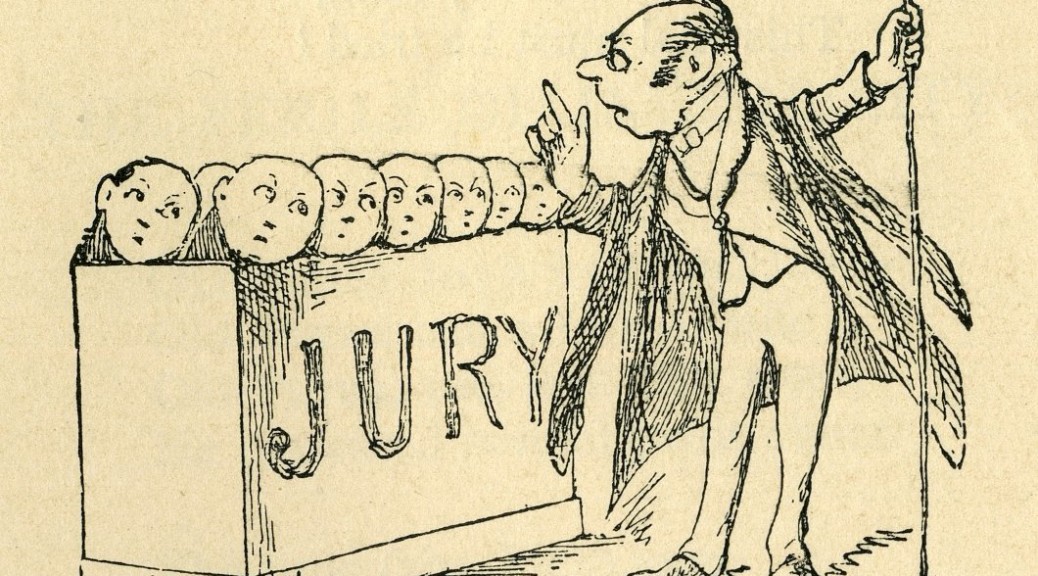
Garry Otton asks if potential jurors are being properly informed of their choice not to have to swear to God?
Around 100 of us were herded out of the waiting room and into the North Court chamber at Glasgow High Court. Mr Newlands, a bossy, Brylcreamed clerk of court brought us right back to our school-days, asking us all to call out ‘yes’ when our name was called. I was treated to a cursory glance from his register when I called out ‘Sir’, just to be different. I was feeling press-ganged into jury service and I vainly thought impudence might get me off. He wanted our attention for 20 minutes while he ran through some of the procedures. This session would be followed by his advice to anyone wanting to abscond, delivered ‘privately’ to individuals taking their turn at the front of an orderly queue of conscientious objectors. His advice was accompanied by a curt warning that we should be prepared to be disappointed. He didn’t make it at all clear that there was another reason you should be getting up out of your seat to embark on the walk of shame to speak to this authoritative figure who had positioned himself at the front to field objections from a small queue of recalcitrant jurors: That was, if you wasn’t a Christian.

Like our schools, courts are also places where you’ll be reminded of the Christian establishment and its privileges. I was already familiar with the efforts of the Scottish Bible Society (SBS) when, in 2010, with the Queen as patron, they embarked on a programme of delivering Bibles to Scottish courts in a push to increase engagement with the Bible “in view of its formative influence on Scotland’s legal tradition.” They were copiously planted in the High Court, Court of Session and sheriff courts, the Faculty of Advocates Library, the Crown Office and the country-wide offices of the Procurator Fiscal Service as if they were hotel bedside cabinets. SBS chief executive Elaine Duncan said, at the time, it was aimed to ensure that judges in the Court of Session and each of the sheriff courts had ready access to a copy of the Bible, not only as a reference book which remained relevant to many aspects of substantive law, but also as the source of the principles of justice, integrity and mercy which underpinned the court system in Scotland. (Witches, gays and adulterers of course begged to differ).
Lord Mackay of Clashfern, as Honorary President of SBS, proudly travelled to Edinburgh to present exclusively inscribed Bibles to the Lord President of the Court of Session, Lord Hamilton, and the Lord Justice Clerk, Lord Gill.
My plan was to rip pages out of Leviticus once a copy was within a few feet of me but I wasn’t entirely convinced my Exorcist moment wouldn’t prompt Mr Newlands to march me out to the front, pull out a cane and give me six of the best.
The “standard”…, Mr Newlands solemnly advised potential jurors, was for jury’s to take the oath in what he somewhat disparagingly described as this “increasingly secular” society. No mention was made of the oath being a Christian one. He explained that you could opt to take an affirmation which, he hastened to add, was more complicated with you also having to give your name. In effect, you would be treated differently, and who wants that? Again, it wasn’t made clear that this warranted making the walk of shame and speaking to him ‘privately’ in front of the rows of filled seats.
One woman, avoiding any walk of shame, put her hand up to tearfully explain that her mother-in-law had just died while Mr Newlands had been talking. She was mercifully permitted to leave. Meanwhile, a slow and hesitant queue began to snake its way to the front to give their personal reasons why it was necessary for him to release them from jury service. Just a couple of people were seen grabbing their coats and leaving.
Mr Newlands now embarked on a slow, showy formula more at home in a Gala Casino, drawing names out of a goldfish bowl to pick a jury that was to take their seats to the right of the judge who would enter in a tight bleached-blonde perm with two trails of plaits too stiff to hang softly down the back of his gown.
I watched as Mr Newlands went up and stood before the newly selected jurors to read to them the indictment, (in this case a woman alleging she had been raped). Newlands then promptly asked them to raise their right arm. They were told to say ‘I do’ to his proclamation, “Do you swear by Almighty God that you will well and truly try the accused and give a true verdict according to the evidence?” All 15 did exactly what they were told, sitting down when instructed to judge a sex case after having just sworn their allegiance to the author of a book that spoke glowingly of men raping women, taking them as slaves and other stories where women lust after men with cocks as big as donkeys and shoot their jism like horses (Check out Ezekiel 23:20 if your teacher forgot to point this out to you in Primary 7).
At no point did Mr Newlands make it absolutely clear to potential jurors that they could instead affirm. It was brushed aside as an inconvenience. Certainly nobody bothered to explain the difference between taking an oath and affirming. Average Joe wouldn’t have known the difference. I was furious and refused to stand when the Judge entered. A cop quickly came over to where I was seated and ordered me on my feet.
My name wasn’t called, but as there was another High court trial about to start in another court room, we were led away to go through the whole process again. Once again, nobody was given any option to swear a (non-religious) affirmation as opposed to taking a Christian oath.
I tried to raise the matter again with another clerk, explaining I wanted to serve in a secular court, not a Christian one. She cheerfully told me they offered a choice of holy books. I watched again as 15 jurors were told to raise their hands, all of them obediently taking a Christian oath. 30 Christians so far and not a single atheist. Hardly fairly representative of society as it is today where Christians can barely scrape 50% in even the most generous of independent polls, is it? When I called from the back “did they have a choice?” I raised some titters and turned some heads in the rows in front of me, otherwise I was ignored, thankfully, this time, even by the police officer.
Again, I wasn’t called.

If you are a religionist, you are helped to avoid Jury Service.
In the Scottish Courts and Tribunals Service Guide, it states you are eligible to apply for excusal from Jury Service if “you are a practising member of a religious society or order the tenets or beliefs of which are incompatible with jury service. You are a person in a holy order; you are a regular minister of any religious denomination; or you are a vowed member of any religious order living in a monastery, convent or other religious community.”
In the United Kingdom, each juror can opt either to swear an oath on the holy book of their choice (provisions are made for Christians, Muslims, Sikhs, and Hindus) or to affirm. The oath typically takes the form “I swear [by almighty God/by Allah/by Waheguru/on the Gita] that I will faithfully try the defendant and give a true verdict according to the evidence.” Affirmation, which was made available to Quakers and Moravians by the Quakers and Moravians Act 1838 and later extended to anybody who choose to do so, takes the form “I solemnly, sincerely and truly declare and affirm that I will faithfully try the defendant and give a true verdict according to the evidence.” But as Mr Newlands correctly pointed out, unlike everyone else, you must also give your name.
Garry Otton 2015
Read ‘Affirming’, another article on Jury Service by Robert Canning

